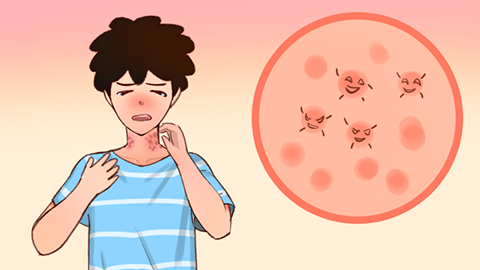What should I do if my baby has eczema?
In general, infant eczema may be caused by underdeveloped skin barrier function, unsuitable environmental temperature and humidity, food allergies, contact allergies, or secondary bacterial infections. It is recommended to seek medical attention promptly, identify the underlying cause, and then improve the condition through general management and medication under a doctor's guidance. Specific analysis is as follows:

1. Underdeveloped skin barrier function: Babies have thin stratum corneum, making them prone to water loss and vulnerable to external irritants. Gently wash with lukewarm water around 37°C daily, and apply baby-specific moisturizer within 3 minutes after bathing to keep the skin hydrated and support barrier repair.
2. Unsuitable environmental temperature and humidity: High room temperature or low humidity can accelerate skin moisture evaporation or cause sweat irritation. Maintain indoor temperature between 22–25°C and humidity at 50%–60%. Dress the baby in loose, pure cotton clothing to minimize sweat-related irritation.
3. Food allergy: Allergic reactions to substances such as cow's milk protein or eggs can trigger the immune system and lead to eczema. Identify allergens under medical supervision, eliminate suspected foods, and switch to extensively hydrolyzed or amino acid-based formula for confirmed cow's milk protein allergy.
4. Contact allergy: Exposure to allergens such as synthetic fabrics or irritating detergents may trigger eczema. Discontinue contact with suspected irritants, use baby-specific non-irritating detergents for laundry, and apply calamine lotion, zinc oxide ointment, or butyrate hydrocortisone cream on affected areas as directed by a physician.
5. Secondary bacterial infection: Bacterial infection of broken skin from eczema may result in pustules and exudate. Use mupirocin ointment, fusidic acid cream, or compound polymyxin B ointment as prescribed, keep the affected area clean and dry, and prevent the baby from scratching.
Routinely bathe the baby 2–3 times per week for 5–10 minutes each time. Trim the baby’s nails to prevent scratching. Mothers who are breastfeeding should maintain a light diet and reduce intake of spicy or allergenic foods to support eczema recovery.







